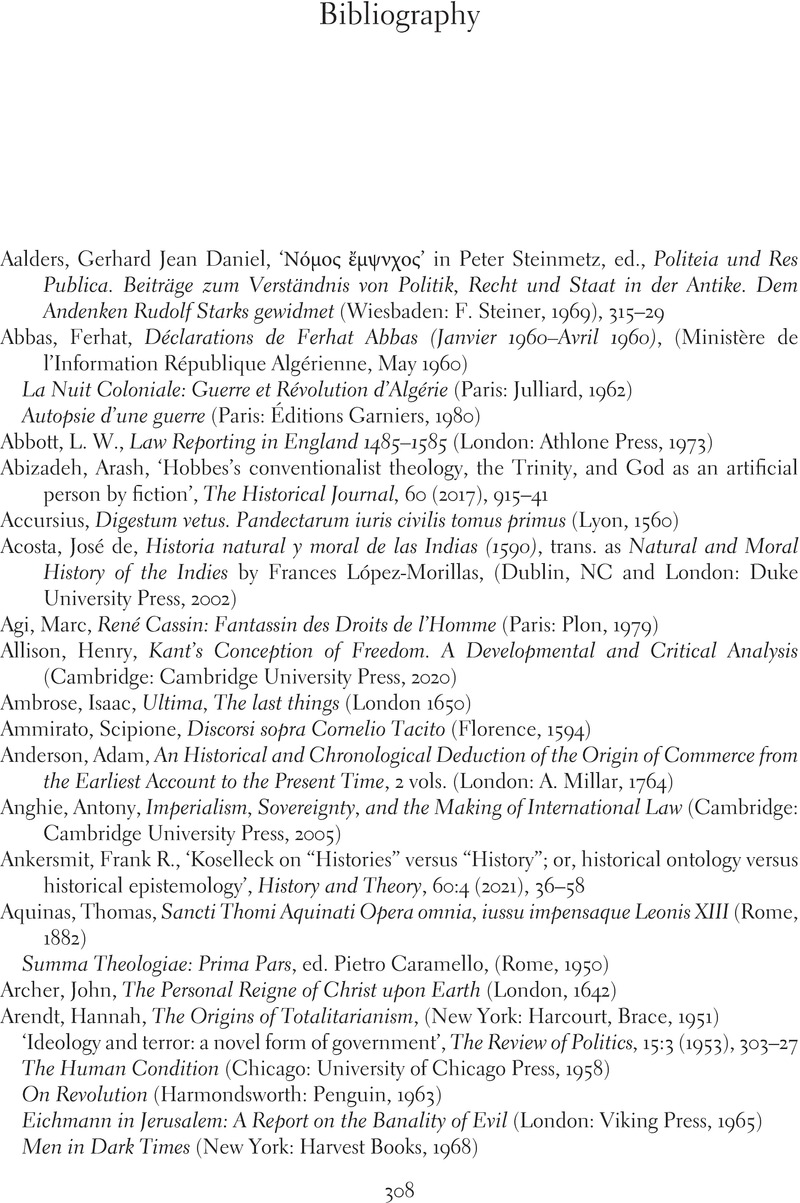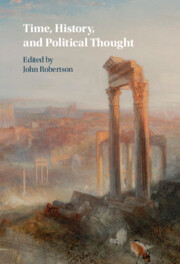Book contents
- Time, History, and Political Thought
- Time, History, and Political Thought
- Copyright page
- Contents
- Contributors
- Acknowledgements
- Note on References and the Bibliography
- Introduction: Time, History, and Political Thought
- 1 Out of Time? Eternity, Christology, and Justinianic Law
- 2 Historicity and Universality in Roman Law before 1600
- 3 ‘The Logic of Authority, and the Logic of Evidence’
- 4 Christian Time and the Commonwealth in Early Modern Political Thought
- 5 Politic History
- 6 Hobbes on the Theology and Politics of Time
- 7 The Recourse to Sacred History before the Enlightenment: Spinoza’s Theological–Political Treatise
- 8 Law, Chronology, and Scottish Conjectural History
- 9 Civilization and Perfectibility: Conflicting Views of the History of Humankind?
- 10 Kant on History, or Theodicy for Mortal Gods
- 11 Law’s Histories in Post-Napoleonic Germany
- 12 After Historicism: The Politics of Time and History in Twentieth-Century Germany
- 13 The Right to Rebel: History and Universality in the Political Thought of the Algerian Revolution
- Bibliography
- Index
- References
Bibliography
Published online by Cambridge University Press: 08 June 2023
- Time, History, and Political Thought
- Time, History, and Political Thought
- Copyright page
- Contents
- Contributors
- Acknowledgements
- Note on References and the Bibliography
- Introduction: Time, History, and Political Thought
- 1 Out of Time? Eternity, Christology, and Justinianic Law
- 2 Historicity and Universality in Roman Law before 1600
- 3 ‘The Logic of Authority, and the Logic of Evidence’
- 4 Christian Time and the Commonwealth in Early Modern Political Thought
- 5 Politic History
- 6 Hobbes on the Theology and Politics of Time
- 7 The Recourse to Sacred History before the Enlightenment: Spinoza’s Theological–Political Treatise
- 8 Law, Chronology, and Scottish Conjectural History
- 9 Civilization and Perfectibility: Conflicting Views of the History of Humankind?
- 10 Kant on History, or Theodicy for Mortal Gods
- 11 Law’s Histories in Post-Napoleonic Germany
- 12 After Historicism: The Politics of Time and History in Twentieth-Century Germany
- 13 The Right to Rebel: History and Universality in the Political Thought of the Algerian Revolution
- Bibliography
- Index
- References
Summary

- Type
- Chapter
- Information
- Time, History, and Political Thought , pp. 308 - 340Publisher: Cambridge University PressPrint publication year: 2023



